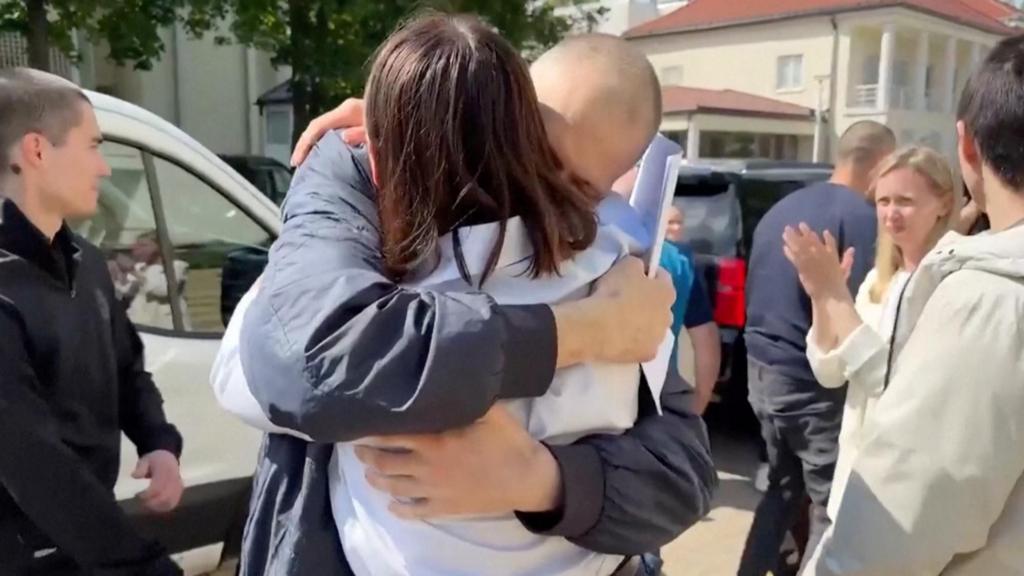Sergei Tikhanovsky, husband of Belarusian opposition leader Svetlana Tikhanovskaya, has been released from prison after five years, along with 13 other political prisoners.
Tikhanovsky, a prominent opposition activist, has been transferred to Lithuania and reunited with his wife, who resides in Vilnius. Svetlana Tikhanovskaya shared a moving video of their reunion, expressing overwhelming joy.
This unexpected release followed a visit by US Special Envoy Keith Kellogg to Minsk, where he met with Belarusian President Alexander Lukashenko. The Lithuanian foreign minister confirmed the release of 14 political prisoners, including Belarusian, Japanese, Polish, and Swedish nationals.
Tikhanovsky’s release is particularly significant. A popular social media figure, he had openly challenged Lukashenko’s authority, leading protests and broadcasting citizens’ concerns.
Arrested in 2020 while campaigning against Lukashenko, he received an 18-year sentence in 2021 on charges related to anti-government protests. His wife subsequently ran for president, sparking widespread protests that were brutally suppressed, forcing her into exile.
While other opposition figures remain imprisoned, including Maria Kolesnikova, Tikhanovsky’s release marks a notable development. In a video, he appears noticeably thinner, reflecting the harsh conditions of his imprisonment.
Franak Viacorka, senior advisor to Tikhanovskaya, described the release as a complete surprise, emphasizing the ongoing struggle for the freedom of the remaining 1,150 political prisoners.
Tikhanovskaya expressed gratitude to President Biden, Kellogg, and European allies for their efforts. While the precise reasons for the release remain unclear, analysts suggest it may be a strategic move by Lukashenko to improve relations with the US administration and mitigate his international isolation, particularly given Belarus’s role in the Ukraine conflict.
Artyom Shraibman of the Carnegie Russia Eurasia Center suggests the meeting with Kellogg served as sufficient compensation for Lukashenko. The release represents a significant diplomatic breakthrough for Lukashenko, easing his international isolation, yet it does not signal an end to political repression within Belarus.
The release of other prisoners, including Natalia Dulina, a university professor, highlights the ongoing human rights abuses in Belarus. Dulina described her sudden transfer from prison and subsequent release as a complete surprise.
The situation remains complex. While Tikhanovsky’s release is a victory for the opposition, the ongoing repression and the uncertainty regarding his future role within the opposition movement present significant challenges. The release is a win-win for both the US and Belarus but fails to alleviate the broader political situation.

